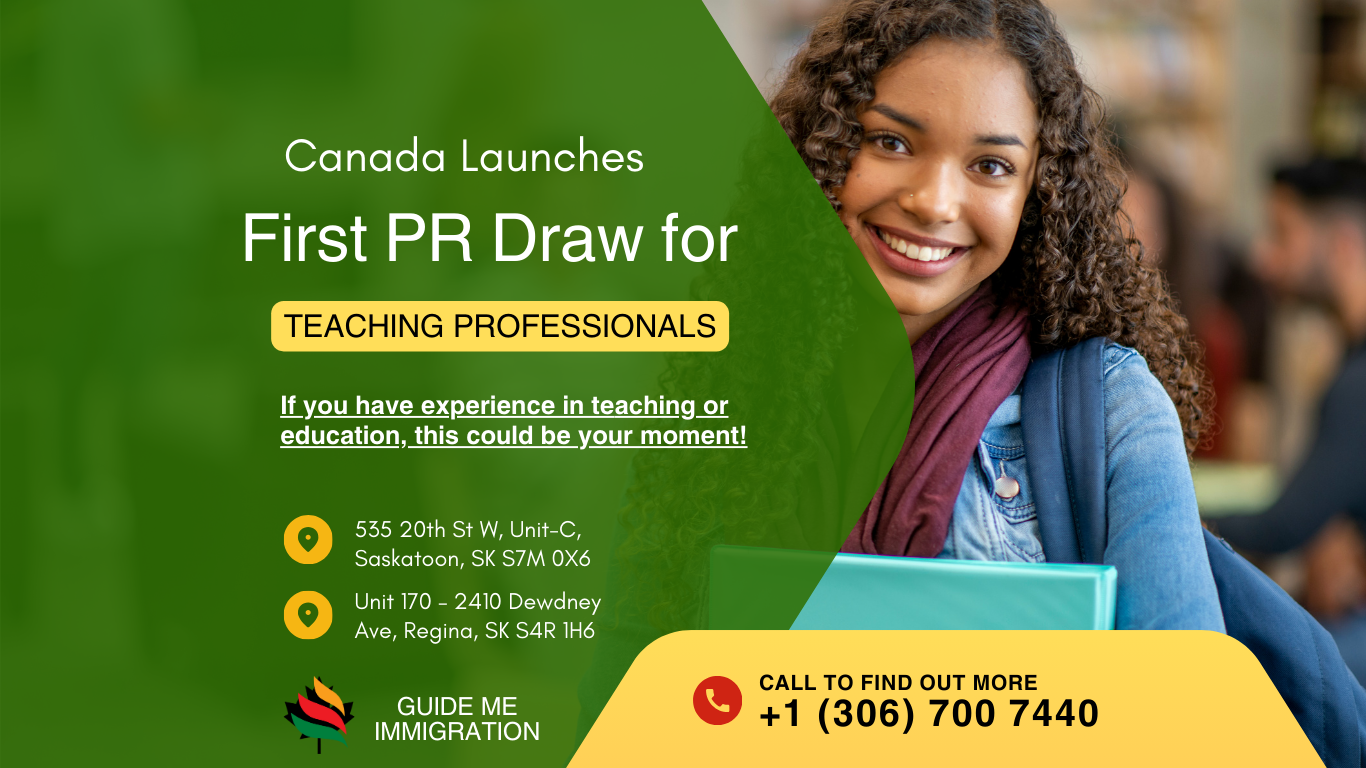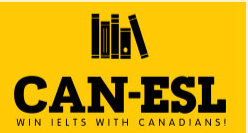Canada’s First-Ever Express Entry Draw for Educators: What It Means and How You Can Benefit
On May 1, 2025, Canada made immigration history by holding its first-ever Express Entry draw specifically for education professionals. This milestone move is not just another update in Canada’s immigration system — it is a strong signal from Immigration, Refugees and Citizenship Canada (IRCC) that teachers, early childhood educators, and other education professionals are now a top economic priority for the country.
This article will explore everything you need to know about this new draw, how it fits into Canada’s broader immigration strategy, who qualifies, and why this could be the perfect time to take the next step toward permanent residency (PR) in Canada.
🎯 Why This Draw Is a Big Deal
For the first time in Canadian immigration history, IRCC has created a dedicated draw category for the education sector. While the Express Entry system has historically focused on economic factors like work experience, education, and language skills — and occasionally had specific draws for French speakers or Provincial Nominee Program (PNP) candidates — this marks the beginning of a more targeted, occupation-based immigration approach.
By selecting only candidates with recent and relevant experience in education professions, this draw reflects Canada’s urgent need for qualified professionals in schools, early learning centers, and special education programs.
📊 Quick Facts: May 1, 2025 Express Entry Education Draw
- Draw Type: Education Category-Based
- Number of Invitations to Apply (ITAs): 1,000
- Minimum CRS (Comprehensive Ranking System) Score: 479
- Eligibility Deadline: Express Entry profile created before 10:35 a.m. UTC, August 10, 2024
- Targeted Occupations: Teaching professionals, early childhood educators, special needs teachers, etc.
🧑🏫 Which Occupations Were Targeted?
IRCC has not released the full list of eligible NOC (National Occupation Classification) codes yet, but based on prior announcements and similar PNP-focused immigration draws, the following occupations are likely included:
- NOC 41220: Secondary School Teachers
- NOC 41221: Elementary School and Kindergarten Teachers
- NOC 42202: Early Childhood Educators and Assistants
- NOC 42201: Instructors of Persons with Disabilities
- NOC 42100: Social and Community Service Workers (in education-related roles)
- NOC 41210: College and Other Vocational Instructors
To qualify, candidates generally must have at least 6 months of continuous work experience in a relevant occupation within the past 3 years, either in Canada or abroad.
Why Canada Needs Educators Now
Canada’s population is growing — but not evenly across all age groups. With a significant increase in newcomers, the need for qualified educators to support young families, immigrant children, and special needs students is greater than ever.
Here are key reasons behind this new focus:
- Shortage of qualified teachers in many provinces, especially in rural and remote communities.
- Rising demand for early childhood education, driven by government investments in affordable childcare.
- Aging workforce — many current educators are nearing retirement.
- Newcomer integration support — increased need for ESL instructors and special education resources.
📅 How the May 1 Draw Fits into 2025 Trends
IRCC has issued 32,929 ITAs through Express Entry in 2025 so far. While the majority of draws this year have focused on the Provincial Nominee Program (PNP) and French language proficiency, this latest development signals the government’s move toward occupation-based immigration selection.
Here’s a breakdown of 2025 Express Entry draw types so far:
| Draw Type | Number of Draws |
|---|---|
| Provincial Nominee Program (PNP) | 7 |
| French-Language Proficiency | 3 |
| Canadian Experience Class (CEC) | 3 |
| Education Professionals | 1 |
| Healthcare and Social Services | 1 |
Notably, the May 1 education draw followed the May 2 healthcare draw, which invited 500 candidates with CRS scores of 510+. Together, these indicate IRCC’s focus on filling public service roles that are critical for a functioning and equitable society.
🧠 Do You Need a Lawyer to Apply?
Short answer: No, it’s not required — but having a licensed immigration consultant or lawyer can be highly beneficial.
Here’s what a professional can do for you:
- ✔ Maximize your CRS score by helping you claim all eligible points.
- ✔ Ensure your documents are accurate, complete, and well-organized.
- ✔ Advise on the right program or stream, including PNP options you may not know exist.
- ✔ Help with timelines — especially important if you’re applying for a work permit, visitor record extension, or bridging open work permit while waiting for PR.
- ✔ Resolve issues quickly, such as misrepresentation warnings or procedural fairness letters.
At Guide Me Immigration, our team has helped hundreds of skilled workers and educators successfully immigrate to Canada. We offer personalized guidance that goes beyond simply filling out forms — we craft immigration strategies tailored to your career goals and life plan.
📌 What You Can Do Now
If you’re an educator with recent work experience and have not yet entered the Express Entry pool, now is the time to act.
Here’s a checklist to help you get started:
✅ Check your NOC – Make sure your job duties align with one of the targeted codes.
✅ Get your ECA (Education Credential Assessment) – This is required unless you have a Canadian degree.
✅ Take a language test (IELTS/CELPIP) – Most applicants need a minimum CLB 7.
✅ Calculate your CRS score – You’ll need to know where you stand.
✅ Create your Express Entry profile – The earlier you’re in the pool, the better your chances.
✅ Consult an immigration expert – This can save you time, money, and stress.
🏫 Real Impact: What This Means for You
For many education professionals, this could be the best immigration opportunity in years. With a CRS cut-off of 479, the May 1 draw was significantly more accessible than previous CEC or all-program draws, which have recently ranged between 521–542 points.
This could be a once-in-a-career chance for:
- ✅ Experienced teachers abroad looking for long-term opportunities in Canada
- ✅ Early childhood educators already in Canada on work permits
- ✅ International students finishing teaching-related programs
- ✅ Applicants with lower CRS scores who now qualify under targeted draws
🗳️ Political Backdrop: What Changed?
This draw also follows Canada’s recent federal election, which saw Prime Minister Carney’s Liberal government reaffirm its commitment to smart, skills-based immigration. The addition of the education category reflects a policy shift towards using immigration to strengthen essential services, not just the tech or trades sectors.
Immigration is expected to remain central to Canada’s economic growth strategy, and more category-based draws are likely to emerge in sectors like:
- 🛠️ Skilled Trades
- 💻 STEM (Science, Technology, Engineering, Math)
- 🩺 Healthcare
- 🎓 Education
💬 Final Thoughts
The May 1, 2025, Express Entry draw for educators marks a major turning point in Canada’s immigration policy — one that recognizes the critical role educators play in building a healthy, inclusive, and forward-thinking society.
Whether you’re teaching in a classroom, working with children with special needs, or leading early childhood education programs, Canada is opening the door to your skills and experience.
But don’t wait too long. The demand for immigration is global — and while this opportunity is historic, the competition will rise.
Let us help you make the most of it.
📍 Contact Guide Me Immigration
Want to know if you qualify for the education category-based Express Entry draw? Need help creating your profile or increasing your CRS score? We’re here to guide you — from your first application to the moment you land in Canada.
Book a free consultation today and let’s start your journey.
📍 Saskatoon: 535 20th St W, Unit-C, Saskatoon, SK S7M 0X6
📍 Regina: Unit 170 – 2410 Dewdney Ave, Regina, SK S4R 1H6
📍 Dhaka: Apt-2D, H-396, R-6 Avenue 3, Mirpur DOHS, Dhaka 1216
🌐 Website: www.guidemeimmigration.com
📞 Phone: +1 (306) 700 7440
✉ Email: info@guidemeimmigration.com
Other link:http://canesl.ca






